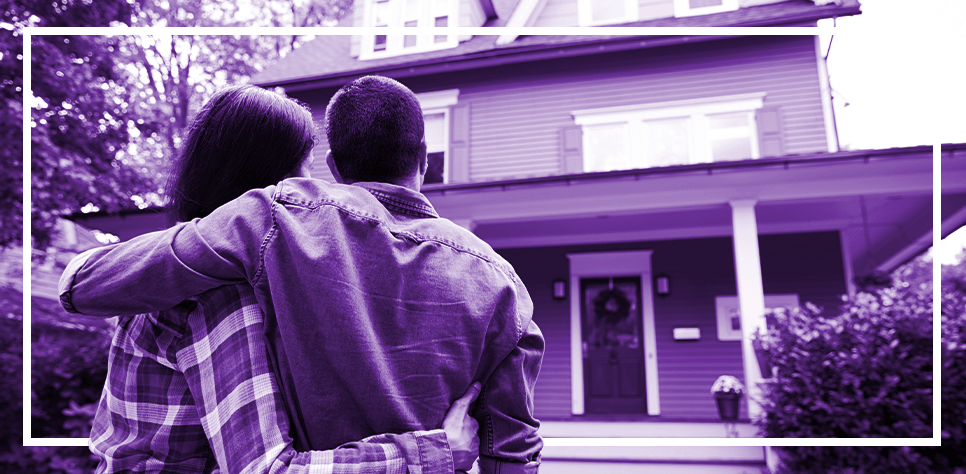Three Handy Hints for First Time Home Buyers
Many people are stepping into the world of homeownership as first home buyers. With post-pandemic job security and steady interest rates playing a big part in many Australian’s decision. Two-thirds of Australians believe that now is the perfect time to buy a property and are now more confident to buy property. If you are planning to enter the housing market with your first purchase, read our handy hints below before signing your first homeowner contract.
Handy Hint 1: Consider the Costs (both upfront and ongoing)
There are a lot of costs that can be easily overlooked when purchasing your first home, that can leave you strapped for cash if not considered properly. The most obvious and largest upfront expense is your deposit, which is usually between 10-20% of your total purchase price. How much you have for your deposit can also determine if you will need to pay lender’s mortgage insurance (LMI), which is required for loans with 80% of your purchase price or more being borrowed. Other fees to consider, are the loan application fee (to cover credit checks, property appraisals and administration costs), legal and conveyancing fees (for the drafting and conduct of the property settlement), and Government fees (such as mortgage registration and transfer fees, which vary from state to state and stamp duty which is often the second largest initial expense after your initial deposit). Due diligence items, such as building, pest and strata inspections, depending on the type of property you are purchasing, are another initial cost but well worth the peace of mind in the long run. Deposit aside, the other upfront costs can be as much as 7% of your total property price, meaning that for a $400,000 property you’re looking at around $28,000 in initial expenses on top of your deposit.
Once the initial costs have been taken care of, you will also need to consider the ongoing expense of owning a property. In terms of your loan repayments, your interest rate can be the area that causes the most fluctuation since interest rates can go up and down, and the amount of your interest charge depends on whether you’ve decided on a fixed, variable or hybrid rate. This is why it’s important to compare, research and find the best rate for you. According to CommSec chief economist, Craig James, the current interest rate is predicted to remain steady. “The Reserve Bank is basically saying the cash rate will remain steady for three years so that gives people a degree of confidence…. [which is an] encouraging aspect whether you’re an owner-occupier or an investor.” This is great news for first home buyers because it provides you with a level of predictability for the initial short-term view of your loan. Alongside the ongoing cost of your loan, other ongoing miscellaneous costs to factor in your budget including rates, unitality costs, body corporate charges (if applicable), insurance and maintenance. These areas are often overlooked in the excitement of a first home buy but are essential to factor in your overall and ongoing budget.
Handy Hint 2: Look into First Home Buyer Grants, Schemes and Concessions
With the initial expenses of stepping into the property market being so, well, expensive, there is Government assistance available to help first home buyers get into a property sooner. Depending on your circumstances, you could be eligible for reduced deposits, insurance and Government fee exemptions, able to gain access to superannuation to put towards your deposit or be entitled to up to $15,000 to help with costs. The most relevant to first homeowners are listed below, but other schemes like the First Home Super Saver Scheme and HomeBuilder Grant may also assist you with your first homeownership goal.
- First Home Owner Grant -This grant is a one-off payment of $10,00-$15,000 to assist with the expenses of getting into the housing market. The eligibility criteria differ from state to state so check your state’s requirements to find out more.
- First Home Loan Deposit Scheme – If you’re having trouble scraping the cash together for your deposit, then the First Home Loan Deposit Scheme could be for you. If you’re eligible you could receive a limited guarantee to buy your home with just 5% of your property price as a deposit and an exemption from paying lender’s mortgage insurance.
- Stamp Duty Concessions – With stamp duty usually being the second largest expense when purchasing a property, a full or partial stamp duty concession could save you thousands and get you in your first home sooner.
Handy Hint 3: Be Picky with your Property
We’ve all heard that property purchase is all about location, location, location and your first property should be no exception to this. Although buying a home is often an emotionally invested purchase, with your first house you still need to think with your head and use logic when deciding if your property is the best pick for you. Both CBA and NAB offer complimentary property and suburb reports that can help you build a snapshot into the market, suburb and projected property price of your first home. This research, alongside your due diligence mentioned in our first handy hint, will help to ensure that you are getting the best house for you now and as a future investment.
Buying your first home is a huge purchasing decision with a lot of things to consider. With the Australian job security and interest rates seeming secure, as well as some great Government assistance for first home buyers being available, more and more people are choosing to step out of the rental market and into their first home. If you are looking to get into your first home faster, talk to the team at Rostron Mortgages, your trusted loan specialists. Take the stress out of finding and applying for your first home loan by letting the team help you find the right loan for you.

